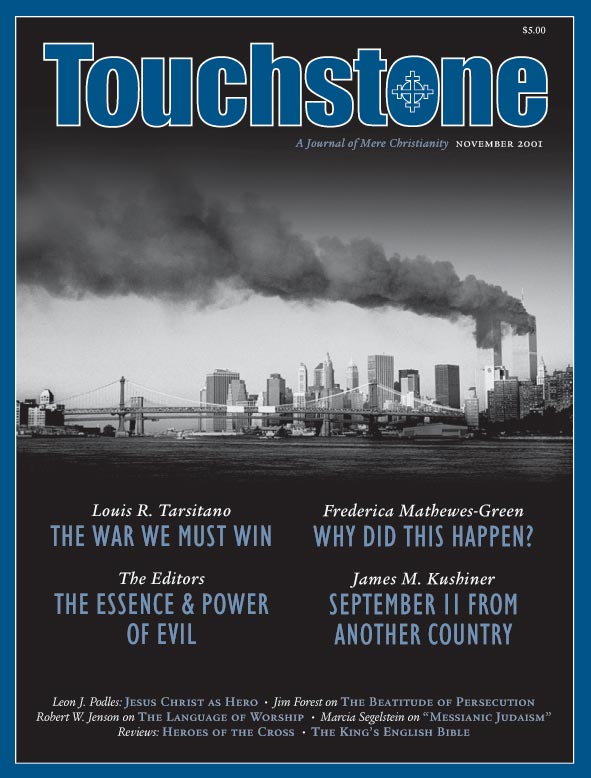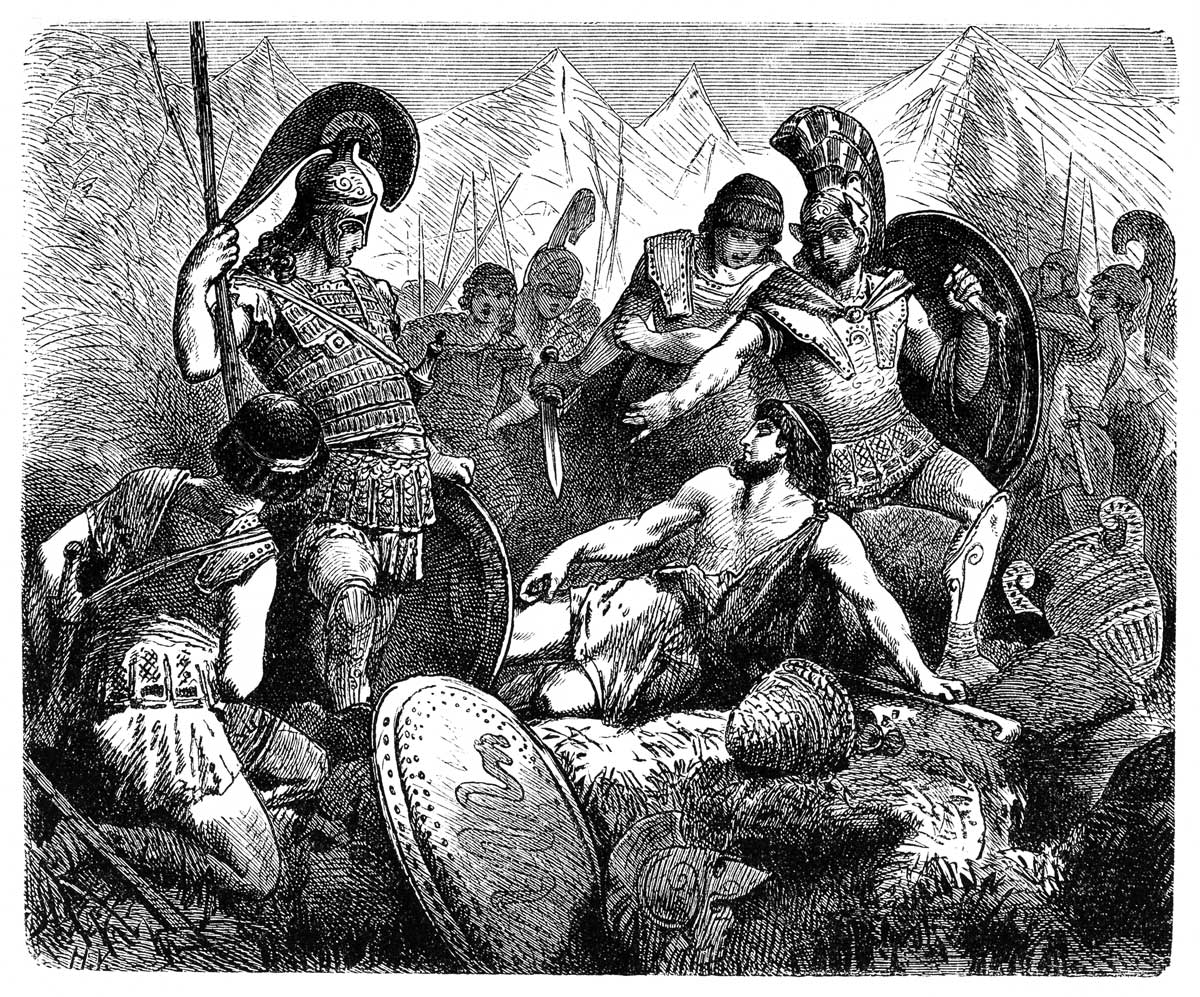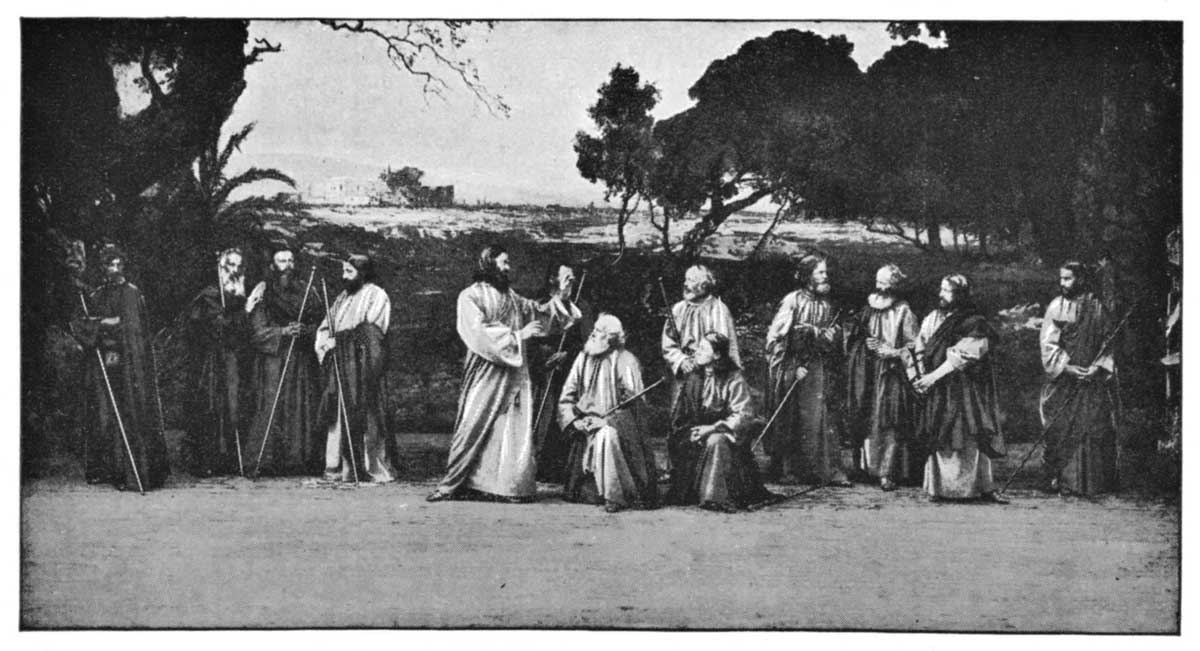The Wise Outwit the Shrewd
Right from its beginning, the Book of Exodus is the account of a conflict between the liberating wisdom of God and the enslaving stratagems of Egypt. This confrontation between two kinds of knowledge is especially evident in the mounting tension between Moses and Pharaoh, as each man tries to outwit the other over the destiny of the Israelites.
For example, as they challenge one another, plague by plague, Moses and Pharaoh each conceal from the other man his true plans for the story’s final outcome. Moses pretends that he wants to take the Israelites into the desert for only a few days, whereas he has in mind, and intentionally hides from his opponent, a larger and bolder project. Pharaoh, for his part, proposes slight concessions to Moses from time to time, with no intention of ever giving in. He will go back on his every pledge.
Eventually, of course, Pharaoh will meet more than his match in this Moses, who was not only “learned in all the wisdom of the Egyptians” (Acts 7:22), but also the spokesman for the all-wise God. Pharaoh, for his part, will ultimately be defeated by his own shrewdness, a process that the Bible calls hardness of heart.
It is instructive to observe that the hostile cunning of Pharaoh against the Israelites is introduced in Exodus at the very commencement of the account. “Come, let us deal shrewdly with them,” he says (1:10). The introduction of this important motif so early in Exodus stands parallel to the story of deception near the beginning of Genesis and, in fact, serves to tie these two biblical books together. As the encounter between the serpent and Eve is about to begin, the former is described as “more cunning than any beast of the field” (Genesis 3:1). Thus, both books, Genesis and Exodus, commence with a wily enemy endeavoring to deceive God’s people and bring them to ruin.
This literary juxtaposition, nonetheless, mainly serves to introduce a contrast. On the one hand the serpent in Genesis is far too shrewd for Eve, and the woman is quickly outwitted and caused to fall. This is not what happens in Exodus, however, where Pharaoh utterly fails to outsmart the two Hebrew midwives, Shiphrah and Puah. These two wise women are thus contrasted with the gullible Eve.
The source of their wisdom, Exodus indicates, is that “the midwives feared God” (1:17). This assertion serves to introduce the biblical principle that “the fear of the Lord is the beginning of wisdom, and the knowledge of the Holy One is understanding” (Proverbs 1:7; Psalm 111:10). Since they knew and feared God, there is no wonder that the midwives were able to outwit the hapless Pharaoh, who would boast that he knew not the Lord (Exodus 5:2).
Thus, for the first time in Exodus, the Israelites “pull a fast one” on Pharaoh, demonstrating a superior wisdom that will eventually make them victorious over the Egyptians.
This theme of victorious wisdom introduced in the story of Shiphrah and Puah serves also, in turn, to tie Exodus back to the Joseph narrative at the end of Genesis. Both Joseph and Moses are portrayed as alike in their superiority over the wisdom of the Egyptian sages.
Moreover, just as Pharaoh was outwitted by two Hebrew women in the first chapter of Exodus, so his hostile policy is again thwarted by two more such women, the sister and mother of Moses, in the second chapter. When Pharaoh’s daughter discovers the baby Moses in the basket floating on the Nile, she is tricked by Moses’ sister into hiring the child’s mother to nurse her own baby! Thus, the family of hostile Pharaoh is deceived into nurturing and raising the very instrument of his downfall. These early stories in Exodus serve, then, to show that Pharaoh, for all his vaunting and bluster, never stood a chance against Moses.
Shiphrah and Puah also take an honorable place among the wise women employed by the Lord to bring deliverance to his people on so many pages of Holy Scripture: Deborah and Jael, Abigail, Esther, Naomi and Ruth, Rahab of Jericho, Tamar in Genesis 38, Judith, Michal in 1 Samuel 19, Joab’s “actress” in 2 Samuel 14, that millstone-tossing Shechemite lady who dispatched Abimelech in Judges 9, and the anonymous female citizen who supervised a much needed beheading in 2 Samuel 20.
Patrick Henry Reardon is pastor emeritus of All Saints Antiochian Orthodox Church in Chicago, Illinois, and the author of numerous books, including, most recently, Out of Step with God: Orthodox Christian Reflections on the Book of Numbers (Ancient Faith Publishing, 2019).
subscription options
Order
Print/Online Subscription

Get six issues (one year) of Touchstone PLUS full online access including pdf downloads for only $39.95. That's only $3.34 per month!
Order
Online Only
Subscription

Get a one-year full-access subscription to the Touchstone online archives for only $19.95. That's only $1.66 per month!
bulk subscriptions
Order Touchstone subscriptions in bulk and save $10 per sub! Each subscription includes 6 issues of Touchstone plus full online access to touchstonemag.com—including archives, videos, and pdf downloads of recent issues for only $29.95 each! Great for churches or study groups.
Transactions will be processed on a secure server.
more from the online archives

33.2—March/April 2020
Christian Pro-Family Governments?
Old & New Lessons from Europe by Allan C. Carlson
calling all readers
Please Donate
"There are magazines worth reading but few worth saving . . . Touchstone is just such a magazine."
—Alice von Hildebrand
"Here we do not concede one square millimeter of territory to falsehood, folly, contemporary sentimentality, or fashion. We speak the truth, and let God be our judge. . . . Touchstone is the one committedly Christian conservative journal."
—Anthony Esolen, Touchstone senior editor









